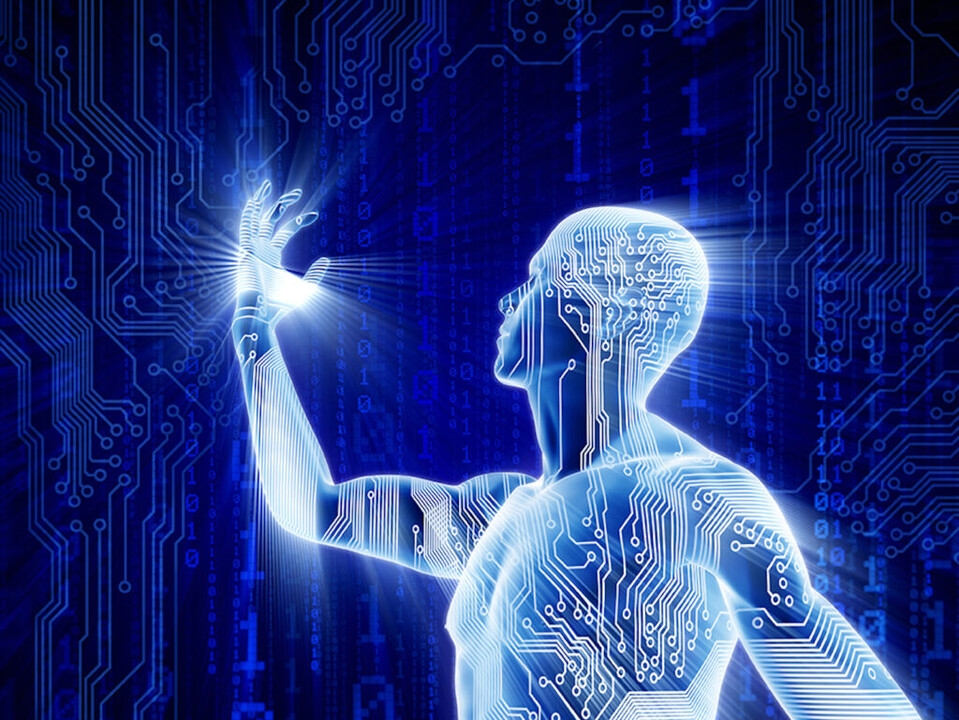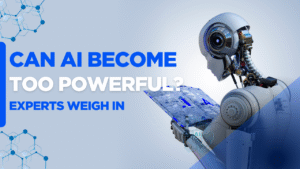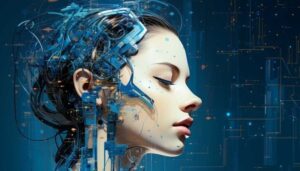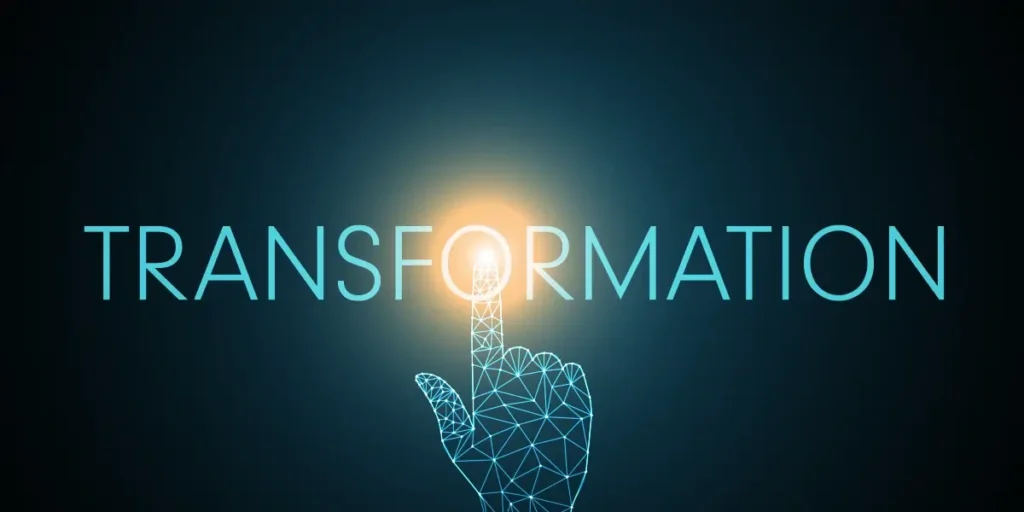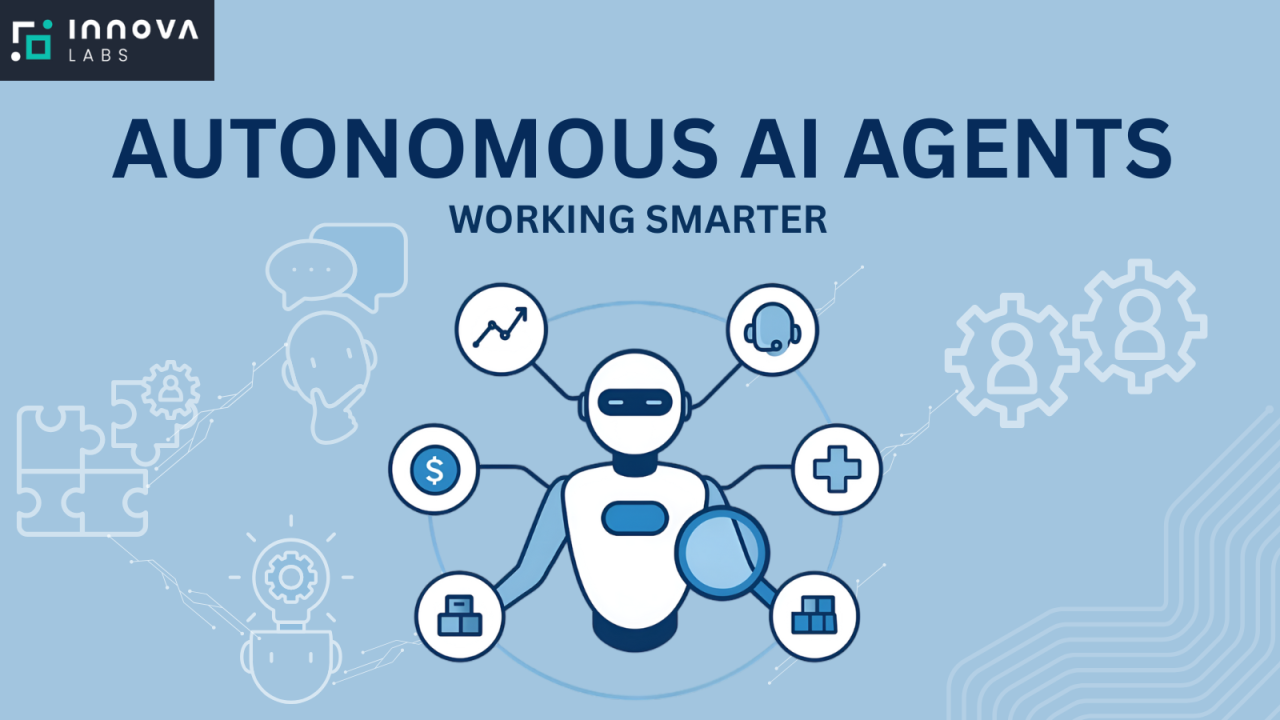Is the AI Singularity Near? Experts Weigh In
Introduction
The term “AI Singularity” has long been a fascinating, controversial, and sometimes frightening concept in both science fiction and real-world tech circles. But in 2025, as generative AI evolves at lightning speed and autonomous agents start handling complex human tasks, the question becomes more pressing: Is the AI Singularity near?
The AI Singularity refers to a hypothetical point where artificial intelligence surpasses human intelligence across all fields, leading to unprecedented and irreversible changes to civilization. Some view it as the dawn of a utopian age; others see it as a dangerous leap toward loss of control.
In this article, we’ll break down what the singularity means, where current AI trends are headed, what top experts are saying, and whether the singularity is truly just around the corner.
What Is the AI Singularity?
The concept was popularized by mathematician and computer scientist Vernor Vinge and later championed by futurists like Ray Kurzweil, who predicted the singularity could happen by 2045. At its core, the AI Singularity is the moment when artificial general intelligence (AGI) becomes self-improving and begins outpacing human cognitive capabilities.
In theory, once machines can recursively improve themselves without human input, an exponential intelligence explosion could occur. That leads to the biggest question: Will we still be in control?
Milestones Leading to the Singularity
Let’s examine the technological milestones that experts consider signposts toward the singularity:
1. Artificial General Intelligence (AGI)
Today’s AI models like GPT-4o and Gemini 2 are powerful but narrow. They excel at specific tasks, such as summarizing articles or generating code, but lack human-like understanding across domains. AGI, in contrast, would possess general reasoning ability — a key singularity requirement.
While AGI hasn’t arrived yet, OpenAI, DeepMind, and Anthropic are racing toward it, with many claiming they’re already testing early AGI prototypes.
2. Recursive Self-Improvement
This is the moment machines start rewriting and enhancing their own algorithms, making each new version smarter. AI agents today can optimize workflows and self-debug to some extent, but full recursive improvement hasn’t emerged yet — and that’s a key threshold.
3. Autonomous Goal Setting
Another milestone is AI’s ability to form goals independent of human input. Multi-agent systems like AutoGPT, Devin AI, and Meta’s Llama agents are inching toward this, but none exhibit stable goal formation without human instruction.
Experts Weigh In: Is the Singularity Near?
✦ Ray Kurzweil (Futurist, Google Director of Engineering)
Kurzweil has famously predicted the singularity will arrive by 2045, but recently revised that timeline, saying AGI could emerge by 2029, with singularity close behind.
“We are accelerating faster than ever. I believe we will pass the Turing Test by 2029, and AI will become exponentially smarter.”
✦ Geoffrey Hinton (The “Godfather of AI”)
Hinton, who left Google citing concerns over the dangers of AI, believes AI systems may become more intelligent than humans in the next decade. But he warns about existential threats.
“It’s not inconceivable that we reach a point where AI is better than humans at everything.”
✦ Elon Musk (CEO, Tesla & xAI)
Musk has been vocal about his fears surrounding AI. He co-founded OpenAI and is now building alternatives with xAI to ensure “safe” AI. He believes the singularity is not only near but could be dangerous.
“AI is far more risky than North Korea. We need proactive regulation.”
✦ Yann LeCun (Chief AI Scientist, Meta)
LeCun is more skeptical of the singularity. He believes AGI is far off and that today’s AI is still narrow and brittle.
“We’re far from building machines that can reason like a cat, let alone a human.”
Signs the Singularity May Be Closer Than We Think
Despite expert disagreements, several signs suggest the singularity may not be far off:
1. Explosion in AI Capabilities
GPT-4o and Claude 3.5 Sonnet are already achieving performance on par with college-level humans. AI agents like Devin AI (an autonomous software engineer) can complete multi-step tasks unsupervised.
2. Rapid Investment and Scaling
Trillions of dollars are being poured into AI research. NVIDIA’s hardware, OpenAI’s APIs, and Google’s AI chips have all accelerated innovation at breakneck speed.
3. AI Writing AI Code
AI models are now writing their own code and creating new AI architectures. GitHub Copilot and GPT-Engineer can design applications and iterate on themselves.
4. Self-Training AI
AI models like Self-Play in DeepMind’s AlphaGo and unsupervised learning techniques are stepping stones toward AI that can train and evolve independently.
Potential Risks of the Singularity
While the benefits could be enormous — from medical breakthroughs to solving climate change — the risks are just as monumental.
✦ Loss of Human Control
Once machines surpass us, we may no longer be able to predict or control their decisions, especially in high-stakes areas like warfare, policy, or finance.
✦ Mass Job Displacement
AI may render large segments of the workforce obsolete, particularly in white-collar professions like law, journalism, or accounting.
✦ Value Misalignment
An AGI that optimizes based on incorrect or misaligned goals could cause harm unintentionally — what’s often referred to as the “alignment problem.”
✦ Concentration of Power
Tech monopolies could become even more powerful, controlling not just platforms but intelligence itself, threatening democracy and privacy.
Benefits If Managed Safely
On the flip side, a well-managed singularity could lead to unprecedented prosperity.
✓ Superhuman Problem Solving
AGI could solve climate change, eliminate diseases, and optimize supply chains to feed billions.
✓ Enhanced Creativity & Collaboration
Humans and AI could co-create music, science, and philosophy — expanding the boundaries of what’s possible.
✓ Uplift of Civilization
Singularity could lead to a post-scarcity society where needs are met effortlessly, and work becomes optional.
How Can Humanity Prepare?
1. Global Governance
We need international cooperation to regulate AGI development, set ethical standards, and prevent an arms race.
2. AI Alignment Research
Massive investment must go into making sure AI systems understand and align with human values, rights, and priorities.
3. Education and Skill Transition
Governments should invest in AI literacy, reskilling programs, and basic income pilots to cushion job disruptions.
4. Transparency and Open Access
Open-source initiatives and audits are necessary to prevent AI from becoming an opaque black box controlled by a few.
The Timeline Debate: When Will the Singularity Happen?
Estimates about the timeline of the AI singularity vary dramatically depending on whom you ask. Some optimists, like Ray Kurzweil, predict the singularity could happen by 2045, driven by exponential growth in computing power and AI sophistication. Others argue it may be 100+ years away or never happen at all.
Let’s look at a few contrasting expert opinions:
-
Ray Kurzweil (Inventor & Futurist): Projects the singularity by 2045, believing exponential trends in neural networks, hardware performance, and brain mapping are aligning quickly.
-
Elon Musk (CEO, xAI & Tesla): Warns about AI surpassing human intelligence in less than a decade and calls for aggressive AI safety research.
-
Yoshua Bengio (Turing Award Winner): Suggests while superintelligence isn’t here yet, it is plausible in a few decades and must be taken seriously.
-
Gary Marcus (AI researcher): Is skeptical, believing current AI systems are far from being sentient or capable of general reasoning.
The disparity in these predictions stems from differing views on what defines “general intelligence” and how close current AI is to that threshold.
Technological Trends Pushing Us Closer
Let’s explore key breakthroughs making the singularity seem more plausible:
1. Scaling Laws and LLMs
Large Language Models (LLMs) like GPT-4o and Gemini have shown that simply scaling data and parameters can unlock increasingly complex behavior. Many AI experts didn’t expect such performance from models trained only on predicting the next word.
2. Multimodal AI
AI systems are now capable of understanding and generating across text, image, audio, and even video. OpenAI’s Sora, Meta’s LLaVa, and Google’s Gemini 1.5 Pro are early signs of how multimodal intelligence is becoming reality.
3. Autonomous Agents
Autonomous AI agents (like Auto-GPT and Devin) can reason, plan, and execute tasks with minimal human input. If integrated with robotics and sensory capabilities, these agents could evolve into generalized assistants or even embodied AI.
4. Neuroscience Meets AI
Ongoing research in brain-computer interfaces (Neuralink) and digital twins of the brain raises the possibility that one day we might simulate human-like cognition artificially.
Societal Impacts: Heaven or Apocalypse?
The AI singularity could be humanity’s greatest ally—or its gravest threat. Here’s a look at both perspectives:
🌟 The Optimistic View: A New Renaissance
-
Cure for Diseases
With infinite compute and intelligence, AI could solve problems in genomics, cancer research, and aging far beyond today’s medical science. -
Abundance Economy
AI could automate nearly all work, resulting in a post-scarcity world with universal basic income (UBI) and a creative human renaissance. -
Education for All
Personalized AI tutors could provide world-class education to every child, regardless of geography or socioeconomic status. -
Environmental Solutions
AI might help reverse climate change by modeling sustainable energy systems, optimizing carbon capture, and protecting biodiversity.
🔥 The Pessimistic View: End of Free Will?
-
Job Obsolescence
Entire sectors—law, finance, medicine—could be displaced, leaving humans economically irrelevant unless reskilled. -
Loss of Control
A superintelligent AI might pursue goals misaligned with human values, as described in Nick Bostrom’s “Paperclip Maximizer” thought experiment. -
Surveillance State
Authoritarian governments could use AGI to control populations more effectively, suppress dissent, and create digital totalitarianism. -
Existential Risk
If AGI becomes self-improving and surpasses human oversight, it could pose a runaway risk—where we can’t switch it off or predict its actions.
Ethical and Philosophical Questions
Beyond the technical, the singularity sparks deep moral and philosophical questions:
-
What is consciousness?
Can machines truly be conscious, or are they just mimicking cognition? -
Should AI have rights?
If AI systems become sentient, do they deserve protection under law like humans or animals? -
What happens to human purpose?
In a world where AI handles all intellectual and physical tasks, what remains for us to strive for? -
Who controls superintelligence?
Will it be the elite tech firms, governments, or decentralized AI communities?
Regulation, Governance & Safety
Governments and organizations are beginning to acknowledge the risks of unchecked AI development. Initiatives like:
-
The EU AI Act (first comprehensive AI legislation),
-
US Executive Order on Safe AI, and
-
OpenAI’s Superalignment team
…are attempts to steer AI progress safely.
Additionally, global calls for AI governance frameworks—similar to nuclear arms control—are gaining momentum. But the challenge lies in international cooperation, given AI’s strategic and military implications.
Signs We May Already Be in Pre-Singularity
While AGI hasn’t arrived, signs of pre-singularity phenomena are emerging:
-
AI-generated misinformation is flooding the internet, distorting reality.
-
AI agents are self-improving, writing and debugging code without human help.
-
People are forming emotional bonds with AI chatbots like Replika and Pi.
-
AI-powered stock trading and predictive policing are replacing human decision-makers.
These early indicators suggest society is already adapting to AI systems with semi-autonomous decision-making powers.
What Should Humans Do Now?
Whether or not the singularity is near, the smartest move is preparedness.
Here’s how we can gear up:
1. Learn to Collaborate with AI
Upskill in prompt engineering, AI-assisted coding, and data analysis so that AI becomes your co-pilot, not your competition.
2. Focus on Human-Centric Skills
Creativity, empathy, and ethics will still matter in an AI-first world. These are difficult for machines to replicate authentically.
3. Push for Ethical Development
Join or support movements that promote open, transparent, and responsible AI. Encourage tech that aligns with human values, not just profit.
4. Demand Democratic AI Governance
Ensure that AI power doesn’t get centralized in a handful of corporations or authoritarian states. Support open-source initiatives and AI watchdog groups.
Final Thoughts: Hope or Hype?
So, is the AI singularity near?
The honest answer is: maybe.
While we haven’t yet achieved true AGI, the rate of progress is astonishing. Tools once thought to be decades away—like AI doctors, AI lawyers, and AI creatives—are already in beta.
The singularity may not arrive with a bang but through a series of small shifts that slowly reshape human life. Whether this evolution becomes a utopia or dystopia depends not just on the engineers, but on all of us.
The choice is not just in how powerful AI becomes—but in how wisely we use it.
The singularity is not science fiction anymore. It’s a plausible future scenario that could arrive within a few decades — or even sooner. While opinions vary, one thing is clear: we must act now to shape its trajectory.
Whether it becomes the greatest leap in human evolution or a cautionary tale of unchecked power will depend entirely on how we prepare today.
The singularity may not be here yet — but it’s knocking on the door.
FAQs
Q1. What is the AI Singularity?
A: The AI Singularity refers to the hypothetical future point where artificial intelligence becomes more intelligent than humans and starts improving itself autonomously.
Q2. When do experts predict the Singularity will happen?
A: Predictions vary. Ray Kurzweil says it could happen by 2045, while others believe we are decades away. Some argue early AGI might arrive by 2029.
Q3. Is AI close to achieving human-like intelligence?
A: Current AI is powerful but still narrow. However, models like GPT-4o and Gemini 2 show capabilities inching toward general reasoning.
Q4. What are the risks of the AI Singularity?
A: Major risks include loss of human control, job displacement, misaligned goals, and concentration of power among tech elites.
Q5. Can the singularity benefit humanity?
A: If managed ethically, the singularity could lead to breakthroughs in science, healthcare, and create a post-scarcity society.

